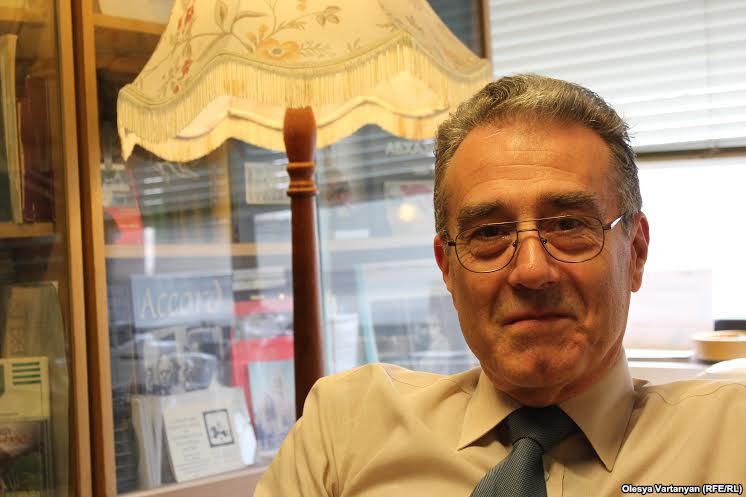In Defence of the Diasporan Petition, by George Hewitt

George Hewitt is professor of Caucasian languages at the School of Oriental and African Studies (SOAS)
What happened in Sukhum last week was wrong at every level. I said this in my statement at the time, and this can be read both on Facebook and on the English-language site of ApsnyPress. It was, thus, encouraging to see diasporan Abkhazians taking the initiative also to call in their on-line petition for respect for constitutional practice.
No state’s constitution could possibly contain a clause legitimising the use of (threats of) violence to unseat a democratically elected president and Aleksandr Ankvab, like him or not, was the outright winner of the poll in 2011. Having spent 4 months in Abkhazia at the end of 2013 and a further month there over Easter 2014, I know very well the extent of society’s dissatisfaction with his presidency. Organising peaceful demonstrations to indicate the participants’ disagreement with this or that policy of a leader is perfectly normal, but issuing ultimatums that a president should resign before the expiry of his term of office and, even worse, acting to compel that resignation is, by definition, unconstitutional. The recent EU-wide parliamentary elections have demonstrated immense disaffection across the continent with the performance of current leaders: take just the two examples of the humiliation suffered by France’s socialist president (François Hollande) and his party at the hands of the rise of the far right, as well as the success of the young anti-EU ‘UK Independence Party’ in the UK. This is the way democracies behave — you vote in a politician/political party and vote them out at the following election, if you are displeased with their performance.
Ever since Abkhazia’s most recent problems with Georgia began in the late 1980s, the leadership has tried to justify its case by appealing to the law: firstly, the argument was that Soviet legislation under Gorbachëv gave Abkhazia the right not to follow Georgia’s drive for independence; then within the framework of structures in place in Abkhazia, Vladislav Ardzinba and other leaders skilfully moved the state forward before, during and after the Patriotic War; they finally promulgated the 1994 Constitution, which has served as the bedrock of Abkhazian statehood for two decades and has underpinned legitimate, peaceful and fully democratic changes of both presidents and parliamentarians in a series of elections which could be deemed exemplary for former Soviet entities. Abkhazians’ right to boast of their achievements in this sphere has now been severely tarnished by those who have chosen to follow less wholesome recent examples.
At a meeting with Ardzinba at Stalin’s Rits’a dacha during the late 1990s, I encouraged him to strengthen Abkhazia’s democratic credentials by giving his support to the creation of a ‘constructive’ opposition. He demurred, stating that, given the political context and the small size number of Abkhazians in Abkhazia, Abkhazians needed to stay united around a single party. Subsequently, opposition-parties did develop, and, acting in union, they have toppled a president. It now remains to be seen how CONstructive and successful in satisfying the hopes of ALL residents of the Republic will be the actions of the coup-organisers in the days, months and years to come. Their task is enormous.
An unfortunate (perhaps dangerous) precedent has been set. I applaud the attempt of my fellow-petitioners in stressing the need to follow constitutional procedures and urge those who disagree with the petition to reconsider and, regardless of their political affiliation, to refrain from using unacceptable language in expressing any counter-view.